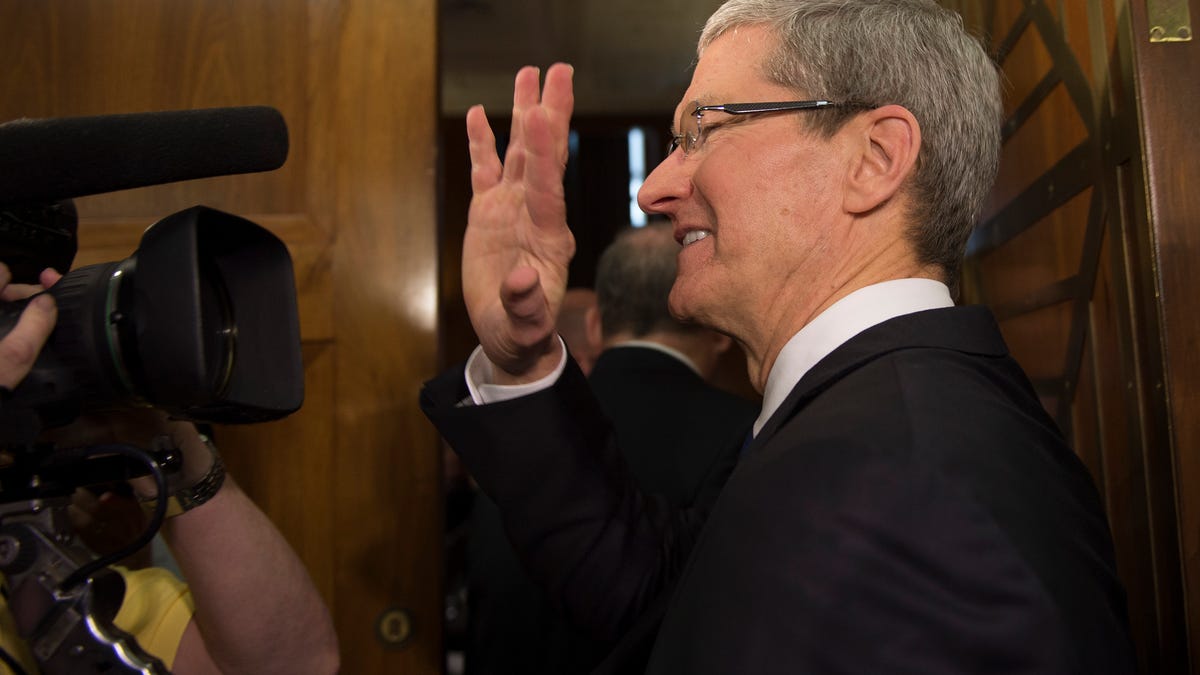Tim Cook: 'We don't use tax gimmicks'
Apple's CEO continues his stump campaign after Senate report said tens of billions in dollars kept out of tax man's reach due to the company's tax avoidance strategies.

"We don't use tax gimmicks," he said Tuesday evening during an appearance at the D11 Conference. During his appearance on stage with D11's co-hosts Walt Mossberg and Kara Swisher, Cook expressed concern that if products developed in the U.S. got taxed here, companies may decide to shift more of their development overseas.
"I'm worried," Cook said.
Last week, congressional investigators released a report documenting how Apple had reduced its tax bill by tens of billions of dollars through the use of a legal, albeit complicated, network of offshore subsidiaries. The report said that between 2009 and 2012, Apple had at least $74 billion in offshore cash that went untaxed. Apple's international operations accounted for some 61 percent of the company's sales last year.
Cook's subsequently testified during a rollicking hearing before the Senate Permanent Subcommittee on Investigations where Apple's boss got an earful from Michigan Democrat Sen. Carl Levin.
But Cook used his appearance at the D11 conference to deny the existence any separate arrangement with the Irish government. "We have no special deal," he said.
"I believe based on the hearing that, simplistically, the thing that's being debated is for a company like Apple or any other company that sells things across the world and develops them in the United States, some people believe that all of the profits all around the world should accrue to the U.S. and be taxed here," he said.
Cook was on friendlier ground than he was last week when he and Levin shared more than a few tense moments. In fact, at one point, Levin treated Apple's CEO to a mini-lecture about the nature of corporate citizenship and fairness.
"We can't continue a system where a multinational company as phenomenally successful as yourself, and deservedly so, can make a decision sitting down in 2008 or 2009, about where the profits are going to flow...where profits are shifted where they are not available to the American tax man. Everyone agrees we've got to change that system."
Levin said that the upshot had been "a huge loss of revenue to the United States."
"Folks, it's not right," Levin concluded.
Cook turned down an opportunity to gobsmack his congressional critics, but with his appearance in Washington now in the rear view mirror, he suggested that Apple's actions had been mischaracterized.
"Here's how I felt on this. The subcommittee was coming to certain conclusions and we felt strongly that we looked at those very differently. I thought it was very important to go tell our story and to view that as an opportunity instead of a pain in the ass," according to Cook, who said he hoped this would lead to a more wide-ranging discussion about tax reform with the aim of effecting a major overhaul of corporate taxes. "This is what we think should be done," he said. Borrowing a page from Apple's product playbook, he described simplicity as good. "It's how we approach everything," Cook said, adding that Apple's tax return was two feet high.
"I would suggest we gut it," he said.

